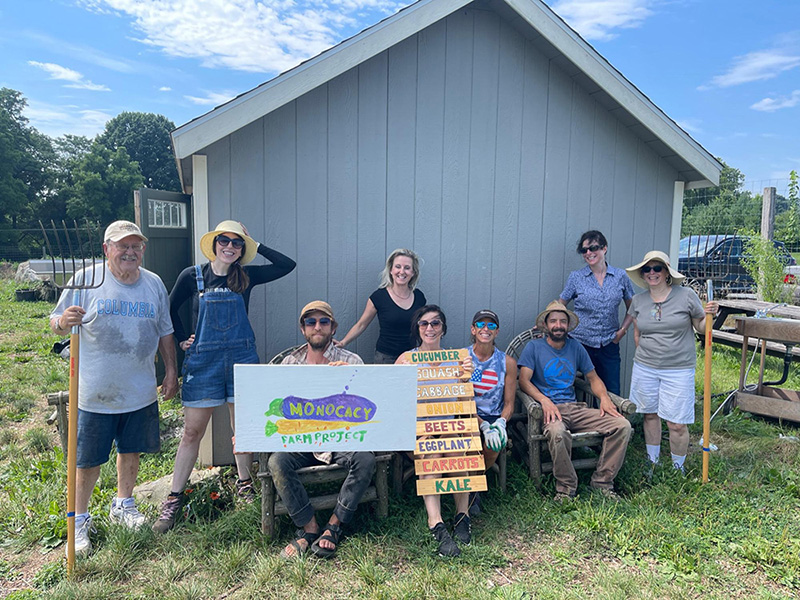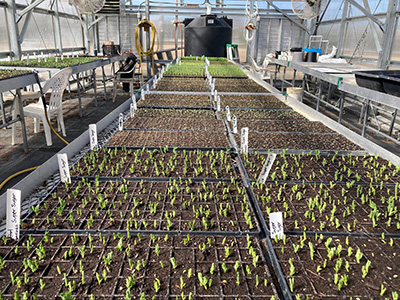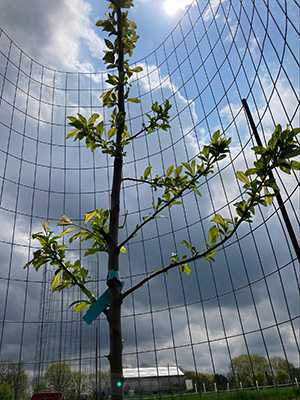
By Eli Stogsdill, Manager
The Monocacy Farm Project (MFP) is a small nonprofit educational farm program. Our mission is “Feeding the Hungry…Caring for the Earth…Growing Healthy Community.”
What do you love most about your job/organization?
It is especially gratifying to be able to grow food in a way that promotes and preserves the health and well-being of our local ecosystems and to share the work of cultivation as well as the fruits of the harvest with people of all ages and abilities in our community.

How does Moravian University support your mission?
Moravian University supports the farm project by incorporating it into their ongoing service projects. We’ve hosted class field trips in which students come and explore narratives of climate change and sustainability on our educational farm. Volunteers from the incoming first year student orientation [1742 experience] have harvested produce for distribution to our community partners in the emergency food system. This year, participants in the spring break staycation program seeded peas in our greenhouse, and then a few weeks later, students in the Sustainability in Public Health course helped to transplant the seedlings out into the field. Moravian students initiated regular pickups from the farm to supply the on-campus pantry, Mo’s Cupboard, with fresh produce to help MFP make our nutritious produce available to more individuals who may need it.
How can Moravian University—and the greater community—be more involved with your organization?
We’ve recently been featured in the Comenian student news publication as “Moravian’s Farm Away From Home,” and we hope that we can continue to offer our living agroecological landscape as an outdoor classroom and venue for collaborative community connection. Moravian University and our community partners can share our work publicly in order to recruit more support in the many forms that it can take. Come and support us in celebrating our 10-year anniversary at one of our upcoming public events.

What is the biggest challenge your organization faces?
As a nonprofit farm we are growing food in a labor-intensive agroecological way to ensure the quality of our produce and out of care for the landscape and watershed in which we live and work. All of this requires sustainable sources of funding to ensure ongoing capacity to grow our impact and diversify our offerings. The question of sustainability is inherently linked to the changing climate and uncertainty in weather patterns as they change the predictability of the growing season. All of this is coupled with the increasing frequency and intensity of storm events and their effects on our waterways. The Lehigh River was recently named one of the 10 most endangered in the country.
What do you hope for the future of your organization?
We are incorporating intensive cover cropping to increase soil fertility and decrease erosion alongside native nut and fruit trees as a long-term perennial strategy to add diversity and climate resilience to our ongoing educational and food production efforts. We hope to share this work with others engaged in ecological restoration and food production so these practices may be incorporated into the necessary ecological stormwater infrastructure commitments in recently adopted municipal climate action plans.